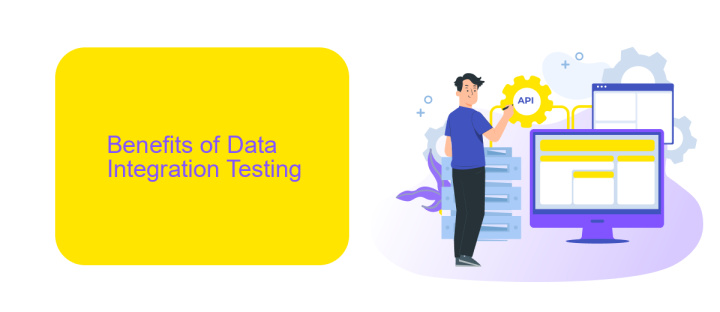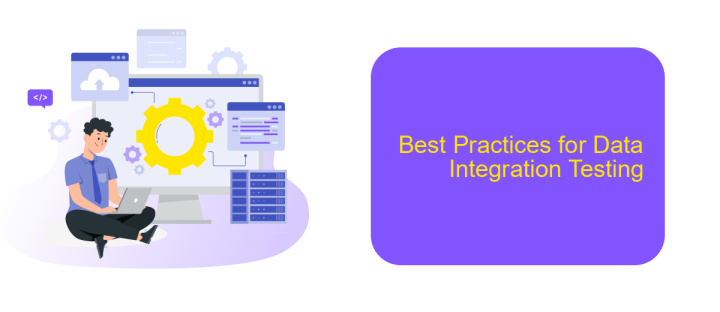What is Data Integration Testing
Data Integration Testing is a crucial process in the software development lifecycle that ensures different data sources and systems work seamlessly together. By validating the accuracy, completeness, and reliability of data as it flows between various components, this testing method helps organizations maintain data integrity, improve decision-making, and enhance overall system performance. Discover its importance, methodologies, and best practices in this comprehensive guide.
Introduction: Defining Data Integration Testing
Data Integration Testing is a crucial process in ensuring that different data sources and systems within an organization work together seamlessly. This type of testing validates the data flow between various applications and databases, ensuring that data is correctly transferred, transformed, and loaded without any loss or inconsistency.
- Verification of data accuracy and consistency
- Validation of data transformation rules
- Ensuring data completeness and integrity
- Testing data flow between multiple systems
Effective data integration testing involves a combination of automated and manual testing techniques. Tools like ApiX-Drive can simplify the process by automating data transfers and integrations between various platforms, ensuring that data remains consistent and accurate across all systems. By leveraging such services, organizations can streamline their data integration efforts, reduce errors, and enhance overall data quality.
Benefits of Data Integration Testing

Data integration testing offers numerous benefits, ensuring that disparate data sources work harmoniously together. One of the primary advantages is improved data accuracy and consistency, as testing helps identify and resolve discrepancies between integrated systems. This ensures that the data flowing through different applications remains reliable and trustworthy, which is critical for making informed business decisions. Additionally, it enhances system performance by detecting and addressing potential bottlenecks and inefficiencies that could arise from integrating multiple data sources.
Another significant benefit is the reduction in manual intervention and errors. Automated data integration testing can streamline processes, making it easier to manage and maintain complex data ecosystems. Tools like ApiX-Drive can facilitate these integrations, offering a user-friendly interface to connect various applications without extensive coding knowledge. By leveraging such services, organizations can save time and resources while ensuring seamless data flow across systems. Ultimately, data integration testing supports better decision-making, operational efficiency, and scalability, providing a solid foundation for data-driven initiatives.
Challenges of Data Integration Testing

Data integration testing presents various challenges that can complicate the process and impact the overall data quality and system performance. These challenges require careful planning and execution to ensure a seamless integration process.
- Data Heterogeneity: Different data sources may have varying formats, structures, and schemas, making it difficult to integrate them seamlessly.
- Data Volume: Large volumes of data can slow down the integration process and make it challenging to maintain data integrity and performance.
- Real-Time Integration: Ensuring that data is integrated in real-time without latency is crucial for applications that require up-to-date information.
- Data Quality: Inconsistent or poor-quality data from different sources can lead to inaccurate insights and decisions.
- Security and Compliance: Ensuring that data integration complies with security standards and regulations is essential to protect sensitive information.
To address these challenges, tools like ApiX-Drive can be instrumental. ApiX-Drive offers automated data integration solutions that simplify the process of connecting different data sources, ensuring data consistency and real-time synchronization. By leveraging such tools, organizations can overcome common obstacles in data integration testing and achieve more reliable and efficient data operations.
Best Practices for Data Integration Testing

Data integration testing is crucial for ensuring that disparate data sources work together seamlessly. It helps identify inconsistencies, data loss, and other issues that could compromise the integrity of the integrated system. To achieve effective data integration testing, several best practices should be followed.
First, clearly define the scope and objectives of the testing process. This involves understanding the data sources, the nature of the data, and the expected outcomes. Comprehensive documentation is essential to guide the testing team and stakeholders.
- Automate tests where possible to increase efficiency and coverage.
- Use real-world data for testing to ensure accuracy and reliability.
- Regularly update and maintain test cases to adapt to changes in data sources and requirements.
- Leverage tools like ApiX-Drive to streamline integration and automate workflows.
Additionally, continuous monitoring and validation are essential to promptly identify and address any issues that arise. By adhering to these best practices, organizations can ensure the reliability and accuracy of their data integration efforts, ultimately leading to better decision-making and operational efficiency.


Conclusion: The Importance of Data Integration Testing
Data integration testing is a critical aspect of ensuring that diverse systems and applications can seamlessly work together. It verifies that data transferred between different sources is accurate, consistent, and reliable. Without effective data integration testing, organizations risk data discrepancies, which can lead to flawed business decisions, operational inefficiencies, and compliance issues. Therefore, investing in robust data integration testing processes is essential for maintaining data integrity and achieving smooth, error-free operations.
Furthermore, leveraging tools like ApiX-Drive can significantly streamline the data integration process. ApiX-Drive offers a user-friendly platform for setting up and managing integrations between various applications and services, reducing the complexity and potential errors associated with manual setups. By automating data flows and ensuring real-time synchronization, services like ApiX-Drive help organizations maintain accurate and up-to-date information across all systems, ultimately enhancing overall business performance and decision-making capabilities.
FAQ
What is Data Integration Testing?
Why is Data Integration Testing important?
What are the common challenges in Data Integration Testing?
How can automation tools help in Data Integration Testing?
What are the key steps in Data Integration Testing?
Time is the most valuable resource in today's business realities. By eliminating the routine from work processes, you will get more opportunities to implement the most daring plans and ideas. Choose – you can continue to waste time, money and nerves on inefficient solutions, or you can use ApiX-Drive, automating work processes and achieving results with minimal investment of money, effort and human resources.

